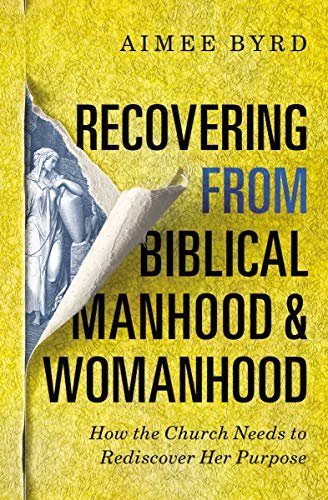Three and one-half years ago I wrote a series of posts questioning the whole idea of “Biblical Manhood.” My concern was to call men to quit worrying about being “manly,” whatever that might mean, and to embrace decency instead. “Biblical Decency” seems to me to be a far more defensible concept. To be a decent, trustworthy, and compassionate guy seems to me to be something more critical than exercising some dubious quality called masculinity.
Those posts bear reposting. We live in a moment that more than ever seems devoid of decency. Among the many examples that could be named (such as the macho chest pounding that passes as US foreign policy, and is cheered by some Christians) the primary one that leads me to revisit these posts is the one that has landed hard on my corner of the Christian world. In this corner, the one that birthed the idea of “Biblical Manhood,” there has been shown to be great rottenness. That brings shame on us all.

Aimee Byrd, a thoughtful and articulate woman, has written a book in which she challenges some of the assumptions and consequences of the Biblical Manhood movement. The response she has received has been ugly. “Biblical Men” can apparently be mean, which should cast a suspicious cloud over the whole business. The controversy has been well summarized by Ed Stetzer in Christianity Today and discussed by Byrd herself here and to some degree here. It seems that to some men what matters is not that she is thoughtful and articulate. What matters is that she is a woman. Frightened, I suppose, by a strong and courageous woman, they have launched ad hominen attacks on her character, her appearance, and her biblical faithfulness.
This is disheartening to me. (No doubt this is because I’m an effeminate softie.) But I would think it obvious to most that decent men or women do not demean the looks or reputations of others, whether those others be men or women. How can this be such a hard lesson to learn? Boys will be boys, some say, though even that is worth questioning. But men should be granted no pass to be cruel. We will be, of course. Occasionally we will say something mean or disparaging of another. But when called on it, decent men own it and seek forgiveness. So do women. It’s a part of being a Christian.
So, yes, for what it is worth, these things bear repeating and reposting. So, I will repost over the next several days. If you don’t want to wait, you can read them in their original setting here.

 Grant was, as Twain noted and his biographer (
Grant was, as Twain noted and his biographer (